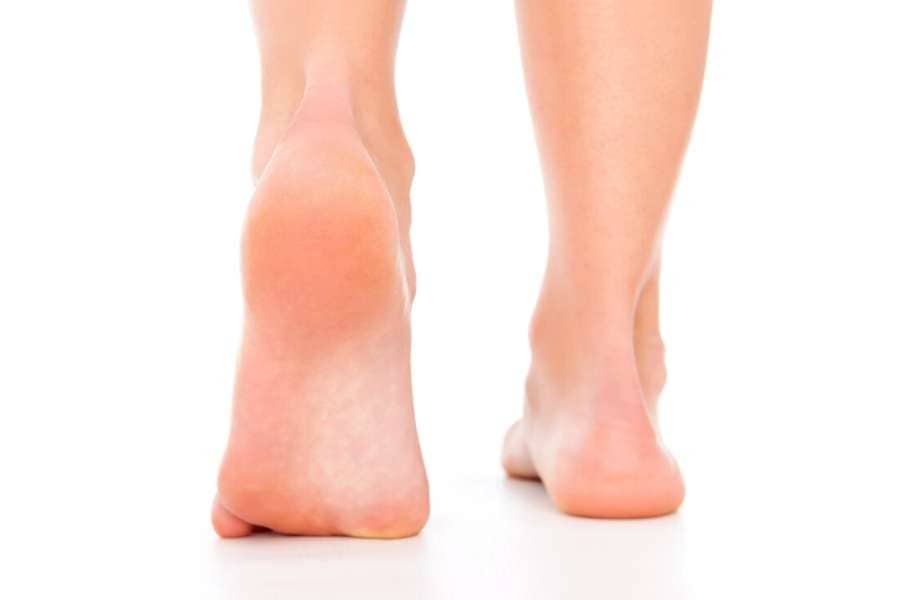Heel Pain Treatments For Plantar Fasciitis
If your heel pain is starting to keep you from work, exercise routines, or daily activities, it’s time to get started on your heel pain treatments. Our foot doctor, Dr. Ruth Kosak DPM at of Arizona Foot and Ankle Physicians, with the dedication to quality patient care can help you get to the root of your heel pain and plantar fasciitis, and find the best treatment solution.
What cause hell pain & plantar fasciitis?
Heel pain is one of the most common complaints from patients. While heel spurs may or may not show up on an x-ray, the spurs themselves are a result of the actual problem: plantar fasciitis.
Your heels are the largest bones in each of your feet. They are linked to dozens of connective tissues, bones, and joints, pain can stem from a variety of issues. You may have heel pain because of:
- Arthritis
- Heel spurs
- Neuropathy
- Bone bruise
- Plantar fasciitis
- Stress fractures
- Achilles tendonitis
- Tarsal tunnel syndrome
Your heel pain may also just be a side effect of your inherited foot mechanics. For example, if you have fallen arches (flat feet) or overly high arches, you can develop abnormalities with your gait, which can lead to heel pain.
Plantar fasciitis is caused by inflammation of the connective tissue that stretches from the base of the toes to where it attaches to the heel bone. Symptoms include stiffness and tightness in the back of the leg and bunion joint, along with an uneven gait. Heel pain is often the first sign of plantar fasciitis.
A heel spur is a calcium deposit that forms where your plantar fascia or Achilles tendon connects to your heel. Over time, Achilles tendinitis and plantar fasciitis can cause tears where the bone spur forms.
This ailment occurs when the plantar fascia ligament along the bottom of the foot develops tears in the tissue. This will result in pain and inflammation of the area closest to the heel bone.
The most common symptoms of plantar fasciitis include:
- Burning
- Stabbing
- Aching pain in the heel of the foot

The fascia ligament tightens up overnight and therefore causes the most pain in the morning. Pain generally decreases as the tissue warms up, but oftentimes returns after long periods of standing or weight-bearing and physical activity.
One of the prevalent factors that contribute to plantar fasciitis is wearing incorrect shoes. This includes shoes that either doesn’t fit properly or provide inadequate support or cushioning. Weight distribution becomes impaired while wearing shoes that are unsupportive. Therein, adding significantly stress to the plantar fascia ligament.
In most cases, the heel pain treatments of plantar fasciitis don’t require surgery or invasive procedures to stop the pain and reverse the damage. Traditional heel pain treatments are usually all that is required. However, keep in mind that every person’s body responds to the treatment differently and recovery
times will vary.
What are the best heel pain treatments?
You absolutely shouldn’t wait, if you have heel pain and plantar fasciitis. — heel pain is never something you have to learn to live with. After performing a comprehensive foot and ankle exam and looking at X-ray or ultrasound images, Dr. Kosak can
typically diagnose the cause of your heel pain on the spot.
Treatments include anti-inflammatory medications, ice packs, stretch exercises, steroid injections, orthotics, and physical therapy.
- Night splints
- Physical therapy
- Shoe modifications
- Custom orthotics
- Padding and strapping
- Corticosteroid injections
- Nonsteroidal anti-inflammatory drugs (NSAIDs)
- Extracorporeal shock wave therapy (ESWT)
- For persistent cases, Radio Frequency Lesioning may be needed
If you continue experiencing heel pain and just aren’t getting relief from conservative therapies, Dr. Kosak could recommend surgery. Heel pain surgery, which is minimally invasive, allows Dr. Kosak to make any essential repairs, including removing bone spurs or releasing your plantar fascia. In any case, you can get the heel pain care you need with this compassionate foot doctor in Scottsdale. If you have chronic heel pain, the dedicated team at Arizona Foot and Ankle Physicians can help.
For more information on heel pain and plantar fasciitis or to schedule an appointment, please don’t hesitate to contact us today at (480) 247-8443!

Ideally, you should schedule a heel pain evaluation with Dr. Kosak and the team of certified podiatric medical assistants at Arizona Foot and Ankle Physicians in Scottsdale as soon as your heel pain begins. It’s especially important to have an evaluation if your heel pain is:
- Linked to burning or tingling
- Preventing you from working out
- Associated with numbness or swelling
- Keeping you from work or daily activities
- Continuing to worsen or not improving after several days
